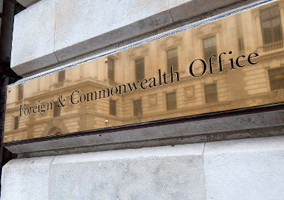International development charities should avoid depicting communities they serve as “helpless and needy” in fundraising campaigns and improve their workforce diversity processes, a group of MPs has said.
Cross-party politicians on the International Development Committee said the structure of international aid reflects the power relationships of colonialism and urged charities, the government and other organisations to shift decision-making power and resources to the communities with whom they work.
The committee’s Racism in the Aid Sector report called on all larger aid charities funded by the Foreign, Commonwealth and Development Office (FCDO) to publish diversity data about their staff including an ethnicity pay gap.
And it criticised the manner of the FCDO’s recent cuts to the UK aid budget, from 0.7% of gross national income to 0.5%, which it said failed to consult civil society partners.
‘More informative fundraising appeals needed’
MPs said many charities had moved away from showing white aid workers serving “poor and helpless” communities in recent years.
But they said contemporary fundraising appeals focusing on frontline workers from the local community they are serving still “give a sense that the individuals they serve are needy and require saving, thus replicating outdated stereotypes”.
The report said such narratives “oversimplify” the situation and should instead explain the reasons why communities are living in poverty such as unequal trading relations, climate change or war.
“Fundraising is extremely important to many international aid organisations, but public appeals that depict the communities they serve as helpless and needy strip those communities of their dignity,” it said.
“They contribute to the narrative that the countries where they work are somehow inferior to the UK. Fundraising appeals should depict positive, realistic stories and wherever possible use local filmmakers. They should seek to inform audiences about the drivers of poverty and inequality instead of giving simplistic messages about the difference donations can make.”
MPs said development charities, led by the FCDO, should also question their use of terms such as “recipient”, “beneficiary” and “aid”, all of which they argue have roots in colonialist ideals of western countries being models to which poorer countries should aspire.
Diversity data requirements
The report said all charities with more than 50 staff contracted by the FCDO should be required to publish diversity data on their workers as well as ethnicity pay gap figures.
It said these requirements should help charities to identify if there are inequalities in their workforce that should be addressed.
For smaller organisations, MPs said the FCDO should work with them to identify ways to increase opportunities for staff from underrepresented groups.
“The barriers to entering the aid sector for candidates from diverse backgrounds can be considerable,” it said.
“Donors and aid organisations should reduce barriers to entry by ending the use of unpaid internships and paying all employees the living wage and removing unnecessary stipulations in job applications such as years of experience in the international aid sector and higher degrees that disadvantage individuals from under-represented backgrounds.”
The report said some aid organisations had reduced “unnecessary stipulations in person specifications in job descriptions and banning all-white recruitment boards” but called on others in the sector to reassess how inclusive their recruitment processes are.
MPs said development organisations should publicly acknowledge that racism exists in the sector and prioritise anti-racism work that tackles the underlying culture of their workplaces and not just the racial diversity of their staff.
They said this will include encouraging “open, honest and often difficult conversations” in aid organisations and welcoming ideas and approaches suggested by staff who are not white.
‘Frontline charities hold much of the risk’
The report criticised the manner of the FCDO’s decision to cut the UK aid budget from 0.7% of gross national income to 0.5% in 2020, which charities last year said had led to unexpected sackings and damaged partnerships.
“The structure of the sector transfers much of the risk to frontline implementing partners who have the least capacity to mitigate those risks,” it said.
“The FCDO should consider how it can restructure its funding commitments to give long-term certainty to local civil society organisations to ensure funding that has been committed cannot be suddenly withdrawn at short notice.”
International Development Committee chair Sarah Champion said: “The aid sector exists to help those in need. But it cannot do that effectively until it addresses the fundamental power imbalances that exist within its structures that allow racist practices to perpetuate.
“The vast majority of people working in development have honourable intentions and do great work, but they need to be aware of the risks of complacency. I ask the sector to listen to the voices in our report. Racism is real; it must be challenged at every level.”
Bond: ‘More needs to be done to address racism’
Lena Bheeroo, engagement and equity manager at Bond, said in response to the report: “Racism in the UK humanitarian and development sector is a serious and ongoing problem that must be addressed urgently. This report is a significant step in the right direction as it shines a light on the sector’s colonial legacy and power imbalances that allow decision-making to stay in the hands of high-income nations.
“The UK aid cuts were a stark example of the UK’s disproportionate power, as partners in low- and middle-income countries – most of whom are Black, Indigenous and People of Colour – were not involved in processes that affected their future.
“More needs to be done to address how racism manifests and persists and we are working with UK NGOs on how to do this. Power needs to be rebalanced with the communities we work with, and we agree with the findings that the FCDO needs to be more actively engaged with conversations on decolonising development systemically.”
Related articles












